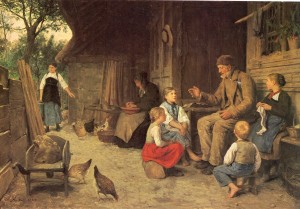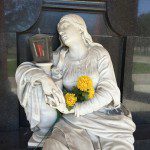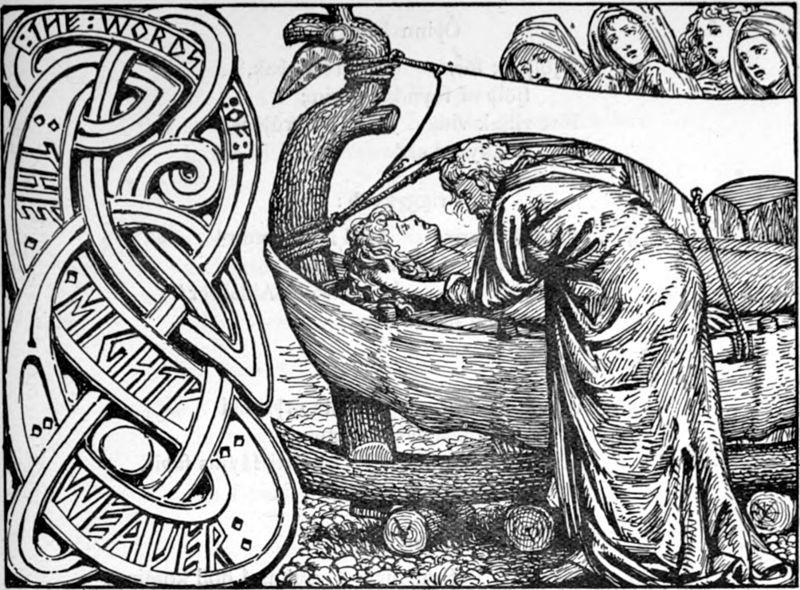Continuing from Saturday’s post, the second unique and vital gift older people have to offer is their stories. Stories of the arc of a life well spent. Stories that edify. Stories that help us deal with life’s challenges. Stories that connect us with “the ancestors.”
Again, for this gift to bear fruit, if it is to bring meaning to their lives and ours, reciprocity is required. If we truly wish to honor the aged, we must listen to them. And if we do not listen and learn we harm ourselves as we dishonor them, for their much-needed wisdom will be lost. People ignored and sent off to play or to diminish in “homes” because they can no longer contribute to the material success of a society cannot tell their stories because those who need to hear do not listen to them.
Unfortunately, though, age does not automatically confer wisdom. One reason many people do not take the time and effort to listen to the stories of the elderly is that too often there is more rant than insight, more ignorance than wisdom. The obsolescence of the old is caused by social and cultural conditions, but it can also be caused by chosen patterns of irrelevance when the elderly opt to live in the past, to “be who I was.”
This preoccupation with the past can imprison people in anxiety, guilt, despair, and depression. Nouwen and Gaffney tell us that by refusing to live in and embrace the present, old people become “victims of a society which identifies their humanity with their productivity, and prisoners of others who made them believe that their self-worth was determined by their friends. In this way they lose their inner freedom and have no room for a creative response to their loneliness. They are doomed to sourness, bitterness, and cynicism; their future can be nothing else than emptiness, darkness, and hell.” And to go far enough down this road old people can become the stereotypes of “witches and warlocks”—“ugly, ill-tempered creatures who cast a dangerous spell on people and spread a contagious fear wherever they go.” A fear of old age. A fear that perpetuates the cycle of isolation, loneliness, ugliness, fear.
When we were among the Maori for a week last fall I was especially struck by their relationships to “the ancestors.” On a daily basis and in a variety of ways, it seems, the Maori seek to understand what their ancestors had to say about a wide variety of important concerns. One of the healers we met felt he was able to hear some ancestors directly. Others sought their elders to tell them stories from the past. Still others searched libraries and genealogical records to ascertain how the ancestors felt.
They were not engaged in a retro-romantic harking back to some long-gone time, though. These most traditional Maori were also modern, progressive, and in many cases entrepreneurial. Their veneration of ancestors helped them live better in the present because they believe wisdom about human life is perennial, although the details change.
According to Maori scholars, a central, unifying idea in Maori culture in mana, a difficult word to translate, but one that refers to the authority and power of a person. One gains mana through acts of wisdom, leadership, and courage that contribute to the life of the tribe, and one also gains mana by being related to a person (ancestor) of strong mana. Maori elders thus gain status (mana) as they age because if they have been doing their work of aging well, their council is sought. They have stories to tell.
[Contributed by Bob Sessions]












